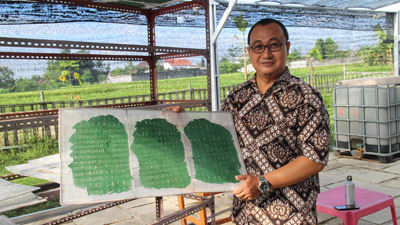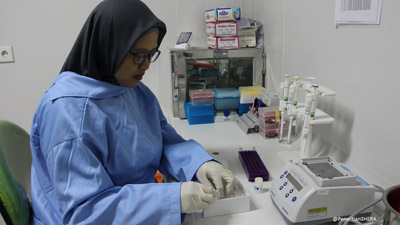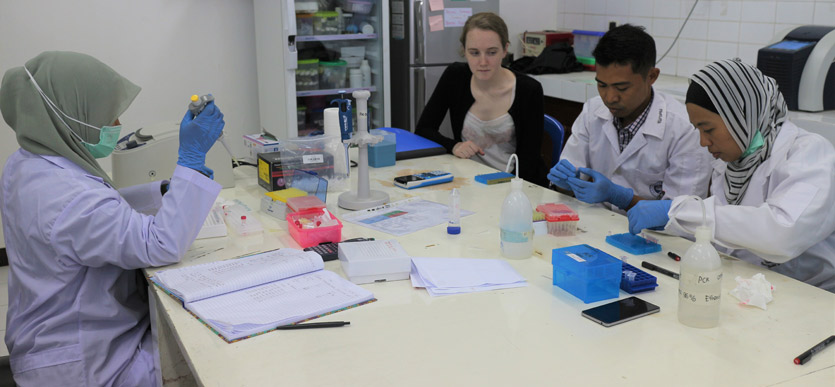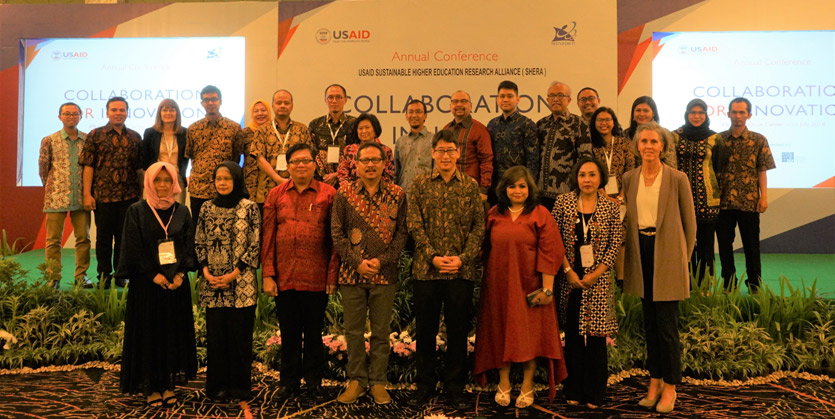USAID SHERA is a $20 million, five-year higher education partnership program supported by the United States Agency for International Development (USAID) and implemented by the Institute of International Education (IIE) to increase the research capacity of the Indonesian higher education sector and collaboration among Indonesian and U.S. higher education institutions (HEIs) in the fields of science, technology and innovation, and improve the enabling environment for quality research. During its first year, USAID SHERA collaborated with the Ministry of Research, Technology & Higher Education (Kemristekdikti) to select 5 (five) research focus areas critical to Indonesia’s development and identify the 5 (five) Indonesian universities that will establish and host Centers for Collaborative Research (CCR) within the priority research areas.


- Center for Development of Sustainable Region (CDSR)
Lead: Universitas Gadjah Mada (UGM)
Partner: Universitas Indonesia, Institut Teknologi Bandung, Institut Pertanian Bogor, Universitas Bangka Belitung, Universitas Negeri Gorontalo, Universitas Muhammadiyah Gorontalo, and University of Colorado Boulder.
CDSR will develop a multidisciplinary collaboration to research and implement a hybrid and efficient energy system, build the capacity of local industry and create a network of renewable energy stakeholders within Indonesia. CDSR will develop prototypes to support near zero-energy buildings in tropical urban areas called Building Integrated - Center for Collaborative Research on Acute Respiratory Infections (CCR ARI)
Lead: Universitas Padjadjaran (UNPAD)
Partner: Universitas Syiah Kuala, Universitas Lambung Mangkurat, Universitas Mataram, Universitas Pattimura, and University of Colorado, Denver.
CCR ARI has the goal of enhancing the capacity among Indonesian universities to perform high quality clinical research that addresses the burden of diseases and use of immunizations, and prevents viral and bacterial respiratory illnesses in highly impacted populations including young children, pregnant women, and the elderly. - National Center for Sustainable Transportation Technology (NCSTT)
Lead: Institut Teknologi Bandung (ITB) Partner: Universitas Diponegoro, Universitas Sriwijaya, Universitas Lambung Mangkurat, Institut Teknologi Kalimantan, Universitas Sebelas Maret, Universitas Sam Ratulangi, and Massachusetts Institute of Technology
NCSTT has the goal of developing advanced technologies for the next generation of electrical vehicles by creating integrated transportation solutions that address technology, policy, infrastructure and planning development in Indonesia. This CCR will develop electric vehicle systems and resolve critical issues in Reserved Energy Storage System such thermal management, safety, charging speed, and energy density/capacity of the battery system. - Animal Biotechnology and Coral Reef Fisheries (ANBIOCORE)
Lead: Institut Pertanian Bogor (IPB)
Partner: Universitas Brawijaya, Universitas Padjadjaran, Universitas Syiah Kuala, Universitas Udayana, Universitas Mataram, Universitas Nusa Cendana, Universitas Papua, and University of Rhode Island and Mississippi State University.
ANBIOCORE’s goal is to increase the country’s food security and self-sufficiency by supporting the advancement of livestock biotechnology and conservation of coral reef fisheries in Indonesia. They will contribute data to three vital domains within the Ecosystem Approach to Fisheries Management and develop functional genomic maker for bull fertility. - Scientific Modelling, Application, Research & Training For City Centered Innovation & Technology (SMART CITY)
Lead: Universitas Indonesia (UI)
Partner: Universitas Diponegoro, Universitas Padjadjaran, Universitas Udayana, Universitas Sriwijaya, Universitas Sumbawa, and University of Illinois, Urbana Champaign, University of Florida, and the Savannah State University.
The goal of SMART CITY is to encourage research groups, technical laboratories and individual researchers to use interdisciplinary approaches in their work, collaborate on a global scale, and create scientific and technological innovations as response to current challenges facing urban areas globally, including the slow adoption of green technology in energy exhaustive and environmentally unsustainable cities and information technology in urban administration, services, and governance; lack of capacity and reliability of urban infrastructure; and the rapidly declining quality of life, health, and general wellbeing of urban residents


